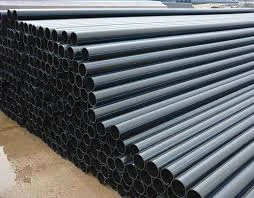Nov . 01, 2024 03:46 Back to list
High-Density Polyethylene Pipe Sprinkler Systems for Efficient Irrigation Solutions
The Benefits of HDPE Pipe for Sprinkler Systems
High-Density Polyethylene (HDPE) pipes have revolutionized irrigation systems, including sprinkler configurations, due to their numerous advantages over traditional materials. As agriculture and landscaping continue to evolve, the demand for efficient, durable, and cost-effective irrigation solutions has increased significantly. This is where HDPE pipes shine.
One of the primary benefits of HDPE pipes is their remarkable resistance to corrosion and chemical damage. Unlike metal pipes, which can rust and become brittle over time, HDPE pipes do not corrode, making them ideal for various environments, especially in areas with high salinity or chemical exposure. This durability ensures a longer lifespan for irrigation systems, leading to reduced maintenance and replacement costs.
The Benefits of HDPE Pipe for Sprinkler Systems
Another significant advantage of HDPE pipes is their flexibility. This characteristic is especially beneficial in areas with shifting soil or extreme weather changes. HDPE pipes can bend without breaking, allowing them to adapt to changes in terrain and reducing the risk of leaks or breaks in the system. This flexibility contributes to the overall reliability of sprinkler systems, ensuring consistent water delivery to plants.
hdpe pipe sprinkler

Furthermore, HDPE has an excellent resistance to UV radiation, which enhances its durability, particularly in outdoor applications. Sprinkler systems using HDPE pipes can withstand sun exposure without degrading, which is a common problem with other plastic materials. Consequently, using HDPE in sprinkler systems means you can count on their effectiveness for years without worrying about structural integrity compromised by environmental factors.
Additionally, HDPE pipes are environmentally friendly. They are made from recyclable materials and can be recycled at the end of their life cycle, reducing waste in landfills. Their leak-proof joints also minimize water loss, contributing to more efficient water usage in irrigation practices. With water conservation becoming increasingly crucial in agriculture and landscaping, the adoption of HDPE pipes aligns with sustainable practices.
Furthermore, HDPE pipe systems can easily be customized to fit specific needs. They are available in various sizes and dimensions, allowing for tailored solutions for different landscapes or crop types. This versatility ensures that the irrigation system can be optimized to meet specific water requirements and distribution patterns, leading to more efficient irrigation practices.
In conclusion, HDPE pipes offer numerous benefits for sprinkler systems, including exceptional durability, ease of installation, flexibility, UV resistance, environmental sustainability, and customization options. As water efficiency becomes paramount in modern irrigation practices, the use of HDPE pipes is likely to become even more prevalent, standing as a testament to innovation in agricultural and landscaping technologies. By adopting HDPE pipe systems, growers and landscapers can contribute to a more sustainable future while maximizing the efficiency and longevity of their irrigation systems.
-
Durable PP Rigid Sheet: Lightweight, Chemical Resistant Solutions
NewsAug.21,2025
-
PVC Grey Sheet for Extraction: Chemical Resistant & Durable
NewsAug.19,2025
-
Durable PVC Pipe Fittings for Plumbing & Irrigation Needs
NewsAug.18,2025
-
HDPE Steel Belt Reinforced Spiral Corrugated Pipe | High Strength
NewsAug.17,2025
-
HDPE Pipe Fittings: Durable, Leak-Proof Solutions
NewsAug.16,2025
-
Premium CPVC Sheet: High-Temp & Chemical Resistant Solutions
NewsAug.15,2025

